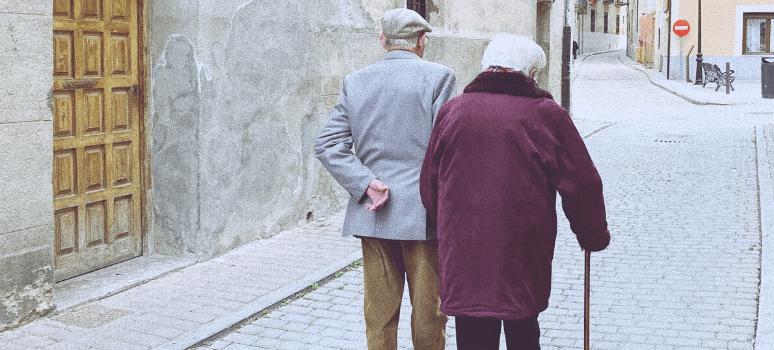
Older people are more sensitive to different stimuli but none affect them as much as the cold. The cause lies in the impaired immune function of fat.
The ageing is a phenomenon that affects everyone throughout life. When it occurs naturally, the body's cells and functions gradually lose their capacity, but in principle this process does not entail any disorder beyond the progressive limitations of ageing itself.
It is true that the deterioration of various elements of the organism, make older people more susceptible to various stimuli. and have a increased susceptibility to develop autoimmune disorders.
The fall of the temperatures has physical consequences for all people, but especially for older people. This is due to certain characteristics of fat cells. Yes, when it is said that fat "protects us from the cold", we were right, And now, thanks to a study by Yale University and the University of California - San Francisco, we know why.
The role of cells and the effects of cold on the elderly
This scientific research project has provided concrete answers to the questions we ask ourselves in relation to older people and the cold. It turns out that The immune cells in fat are designed to protect us from low temperatures. However, this function can deteriorate over time, causing it to people suffer from more inflammation due to cold weatheras well as an increased number of chronic diseases.
The study, published in the journal 'Cell Metabolism', used a series of mice as a sample in which the evolution of adipose tissue was studied. It turned out that thennate cells, which are dedicated to restoring body heat, could cause cold-induced death due to impairment of their functions.. Over time, these cells lose their capacity for action and both mice and humans become more vulnerable to damage from low temperatures.
What are the dangers of the cold for older people?
One of the main risks of the cold for people of this age group is that they may suffer from joint stiffness. In addition, bones can become weak and more easily damaged in older people in poor health. One reason for this is that cold contracts matter, making any element of the body less flexible in general.
In addition to this motor aspect, elderly people may suffer from breathing problemssuch as bronchitis, tonsillitis or pneumonia. In older people, such diseases can cause severe breathing difficulties. People who are unable to breathe in and out repeatedly may experience different types of choking.Many people in this age group live alone, and may therefore be exposed to respiratory diseases without proper care.
Also the surface layers of the skin can dry out and tear in the cold. Older people do not have as much epidermal vitality, nor the ability to regenerate quickly. Also, wounds may take longer to heal and heal safely in older people.
There is evidence that there may be a number of cognitive impairments, as older people have more difficulty in reasoning and communicating.
And then there is the influenza virus, which in winter affects more than 10 per cent of the elderly population because the virus spreads faster in cold temperatures and higher humidity.
This list of symptoms corresponds to biological ageing processes. However, these can be added to pathological ageing processes that have to do with oxidative stress or an increased release of free radicals.
What can be done to prevent cold damage?
The older people should have appropriate heating at home and avoid going out during the hours when temperatures are lowest. However, rooms in the house should be well ventilated in the morning.
It is important that they are properly wrapped up and that they eat appropriate food for the low temperatures, always warm food and especially broths, soups or herbal teas that prepare the body and comfort it.
It is essential that they are monitored by specialists at a medical level to monitor their health, and by family members or people close to them, to monitor their habits and routines at this time of year.
https://biosalud.org/blog/claves-para-retrasar-el-envejecimiento/

